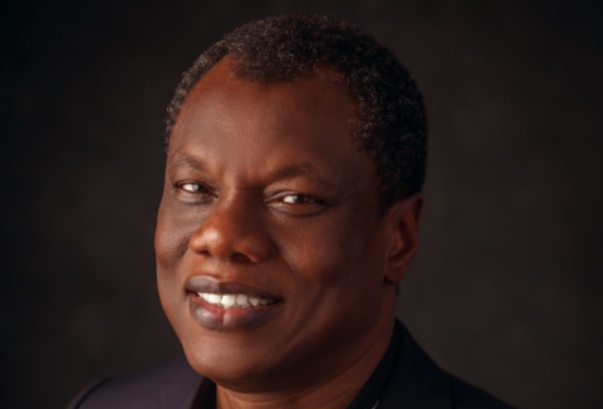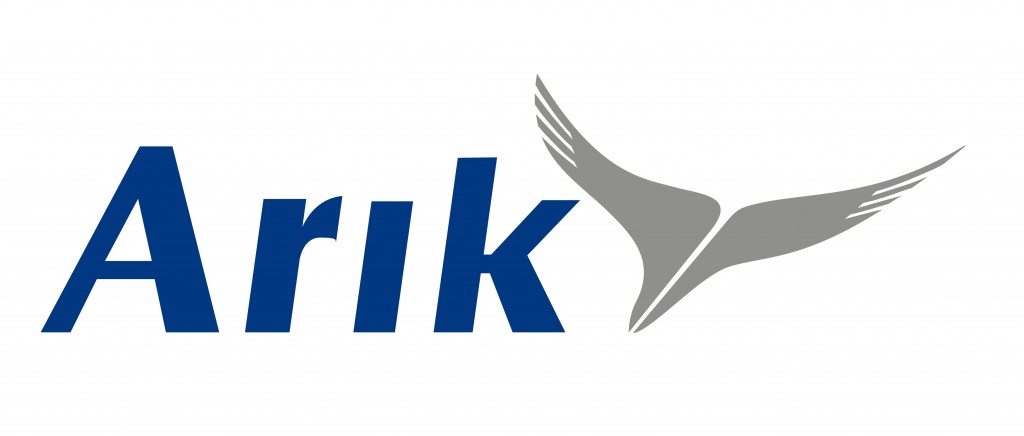News
Our Youth and the Protests, Looking Beyond End SARS

By Austin Okere
The youth are not our enemies; let us remember this before we do anything rash such as using brute force to quell their protests. They are our children that have come of age.

Their flaws are our failings as parents. All over the world, the youth have broken ranks with the earlier generation when they feel that their future is being mortgaged, mostly through excessive greed of the “elders”.
The wind of change has been blowing for quite a while. After the global financial crisis in 2008 there was the Occupy Wall Street protests in the America. Occupy Wall Street (OWS) was a protest movement against economic inequality that began in Zuccotti Park, located in New York City’s Wall Street financial district, in September 2011. It gave rise to the wider Occupy movement in the United States and other countries.
Thereafter came the Extinction Rebellion, a global environmental movement with the stated aim of using non-violent civil disobedience to compel government action to avoid tipping points in the climate system, biodiversity loss, and the risk of social and ecological collapse.
Young Greta Thunberg, a Swedish environmental activist gained international recognition as the face of the protests for promoting the view that humanity is facing an existential crisis arising from climate change.
Quite recently, there was the Black Lives Matter protests which started in America and gained momentum, after a white policeman brutally murdered a black man, George Floyd, by kneeling on his neck for 8 minutes and 46 seconds. The #BlackLivesMatter movement is a Global Network that builds power to bring justice, healing, and freedom to Black people across the globe.
The Arab Spring, closer to home is indelibly etched in our minds. It was sparked by the first protests that occurred in Tunisia on 18 December 2010 in Sidi Bouzid, following Mohamed Bouazizi’s self-immolation in protest of Police Corruption and ill treatment. It escalated into a series of anti-government protests, uprisings, and armed rebellions that spread across much of the Arab World in the early 2010s.
The past two years have indeed been years of discontent, with protests demanding the removal of corrupt governments, better living standards, greater freedoms and more rights, toppling leaders from Bolivia to Sudan, with the latest being the forced resignation of the President of Kyrgyzstan after weeks of mass protests. The leaders of Bolivia, Algeria, Lebanon, Iraq and Sudan have been pushed out as a consequence.
Youth Protests across the world aiming to take back their future is like a moving train. Stand in front of it and it will crush you. Remain on the platform and it will leave you behind; or you can hop on it for a ride into a future of social Justice and good governance.
Truth be told Nigeria’s case is not very different, even though in fairness, it did not start with this regime. It is an endemic problem that has assumed exponential proportions. SARS (Special Anti-Robbery Squad) and the injustice they perpetuate with characteristic impunity is a microcosm of the Nigerian situation.
In June 2018, CNN announced that Nigeria had overtaken India as the country with the largest number of people living in extreme poverty, with an estimated 87 million Nigerians, or around half of the country’s population, thought to be living on less than $1.90 a day.
Data from the National Bureau of Statistics reveals that Nigeria’s unemployment rate as at the second quarter of 2020 was 27.1%, indicating that about 21.7 million Nigerians remain unemployed. The data also reveals that the worst-hit are Nigerian Youths (between the ages of 15 and 25 years) with over 13.9 million currently unemployed.
With the largest economy in Africa (GDP of $447b in 2019 compared to South Africa $359b and Egypt $303b), and despite her abundant natural resources and huge revenue from oil and gas exports of $32.6 billion in 2018 (according to eiti.org) it seems that Nigeria is experiencing growth without shared prosperity.
The gap between the rich and poor is ever increasing, as is the gap between the “in Crowd” and those left behind. Treasury looting and stashing hoards abroad has not helped the deficit in infrastructure and the enabling environment for creating Jobs. According to TRT World, Every year, Africa loses more than $88b due to illicit capital flight, amounting to 3.7 percent of the continent’s GDP of $2.6trillion.
Our youth are forced to take to immigration – legal and illegal, sometimes risking dangerous trails in the Sahara desert and across the Mediterranean Sea in rickety rafts in pursuit of survival. Nigeria has been a “country of huge potential” since independence 60 years ago. When will this giant wake up from her slumber?
It is good that our youth have found Purpose behind a common goal. The strategy, conduct and prosecution of the peaceful protests has so far been remarkable. Unlike previous ones, this Youth Movement has not been punctured by tribalism, religion nor compromised by “leaders”.
The youth have stood as one, behind a vision of a better country with shared prosperity and social justice. The youth have finally proved that they are not lazy, clueless and entitled. To buttress this, PayStack, a Fintech company founded in 2016 by Nigerian Youths Shola Akinlade and Ezra Olubi has been acquired by global fintech giant Stripe, in the biggest M&A deal in Nigerian corporate history.
Just recently, Interswtich, another Youthful Nigerian Company reached unicorn status after Visa acquired a minority equity stake in the firm, making her one of the most valuable African fintech businesses with a valuation of $1 billion,”.
CWG Plc’s significant contribution to Financial Inclusion is another example. Diamond bank (now acquired by Access Bank) with 7m customer accounts after 23 years was able to add an additional 6m customers, mostly from the Bottom of the Pyramid in just one year after the launch of the Diamond Yello Account, Powered by CWG and MTN.
It is about time that the youth invite themselves to the political table, because it is about their future. It is imperative to get involved in politics right from the grassroots, where the impact is most felt. It is through such initiatives that we can ensure quality and inclusive education and healthcare for the masses while create an enabling environment to attract businesses and create jobs.
It is from here that they can ensure that the voice of democracy rings out loud throughout the land (and not one political godfather installing his stooges and milking the state treasury). #EndSARS was just a catalyst, it is imperative to now look #BeyondEndSARS and focus on the broader goals of social justice and equity.
The Youth have drunk deep of this cup of knowledge and empowerment, and there is no turning back. Even though the protests end in the streets, they will be carried deep in their hearts. This movement is by no means to a destination but rather a journey of sustainable nation building. They will begin to ensure that the demand side of governance is deeply entrenched and that the voice of democracy will always be heard loud and clear at every ballot.
Gone will be the days when they were used as thugs during elections and dumped soon after, and the days when they disenfranchised themselves from apathy to the pollical process and the attendant requirement of probity from elected officials. This is just the beginning; the best of the Nigerian Youth is yet to come – Finally there is hope for our dear country.
Austin Okere is the Founder of CWG Plc, the largest security in the technology sector of the Nigerian Stock Exchange, and Entrepreneur-in-Residence at CBS, New York. Austin also serves on the Advisory Board of the Global Business School Network based in Washington, and on the World Economic Forum Global Agenda Council on Innovation and Intrapreneurship. Austin is a Non-Executive Director at Globus Bank and serves on the Board of Trustees of the Risk Management Association of Nigeria (RIMAN). Austin now runs the Ausso Leadership Academy focused on Business and Entrepreneurial Mentorship.
News
UK Minister for Africa Visits Nigeria to Deepen Strategic Partnership

The United Kingdom’s Minister for Africa, Lord Collins of Highbury, has concluded a three-day visit to Nigeria, aimed at reinforcing the UK-Nigeria Strategic Partnership.

He reaffirmed the UK Government’s strong commitment to deepening trade and investment ties between the United Kingdom and Nigeria.
During his visit, Lord Collins met with senior Nigerian government officials, business leaders, civil society representatives and United Nations agencies.
These engagements underlined the UK’s long-term drive to support Nigeria’s prosperity and stability while deepening bilateral cooperation for transformative growth across our shared priorities.
A key highlight of the visit was Lord Collin’s bilateral meeting with Nigeria’s Minister of Foreign Affairs, Yusuf Tuggar, in which both parties reaffirmed their unwavering commitment to strengthening economic ties and promoting regional security. The Minister was joined by the UK’s Trade Envoy to Nigeria, Florence Eshalomi MP.
Lord Collins also met with Deputy Speaker of the House of Representatives, Hon. Benjamin Kalu, and discussions focused on opportunities to strengthen engagement between UK’s parliament and Nigeria’s National Assembly and the importance of furthering women’s participation in politics.
Speaking on his visit, the UK Government’s Minister for Africa, Lord Collins said: “Nigeria and the UK share a rich, ambitious relationship: one that is deeply rooted in respect.
“Our Strategic Partnership is at the forefront of this, and my visit has focused on how our countries can continue deepening our cooperation on key issues such as trade and investment to drive economic growth and deliver prosperity for us all.”
The Minister held discussions with United Nations representatives on the ongoing reform of the UN system, its implications for Nigeria and how the reform can effectively support those most in need, particularly in Northeast Nigeria, whilst also contributing to global humanitarian efforts.
Lord Collins also met with civil society leaders to discuss electoral integrity and governance reforms, reinforcing the UK’s commitment to democratic values and community empowerment.
He later visited Nigeria’s Anti-Kidnap Fusion Cell: a key security initiative supported by UK expertise through the National Crime Agency and the Integrated Security Fund, which plays a vital role in enhancing local safety and combating serious crime.
Also commenting on the visit, the British High Commissioner to Nigeria, Dr Richard Montgomery, said: “Driving growth is central to the UK’s foreign and development policy. Lord Collins’ visit to Nigeria underscores the UK’s unwavering commitment to deepening our shared prosperity through expanded trade and investment. We are proud to stand alongside Nigeria as it forges a resilient and dynamic economy.”
This visit underscores the UK’s enduring partnership with Nigeria – built on mutual respect, shared goals, and a vision for a prosperous future for both nations.
News
PalmPay Launches CSR Initiatives to Empower Women, Foster Financial Literacy in Northern Nigeria

In a strategic move to expand financial inclusion in Nigeria, leading mobile banking platform, PalmPay has launched a series of CSR programs across Kano and Kaduna. The CSR initiative named “Passing the Baton” represents the brand’s commitment to passing on knowledge and providing the resources individuals and businesses need to achieve financial independence and drive economic empowerment.

This initiative is a bold move by PalmPay to bridge the opportunity gap in the North by providing financial literacy training and micro-business branding support to 5,000 women-owned businesses in Kano and Kaduna. This strategic initiative reaffirms PalmPay’s commitment to inclusive development and economic empowerment, particularly in underserved regions.
“At PalmPay, we believe that real financial inclusion must be far reaching and cover the grassroots,” said Chika Nwosu, Managing Director of PalmPay. “Our new CSR program is focused on supporting gender equity by equipping women with the knowledge, tools, and visibility they need to thrive as entrepreneurs in their communities.”
Through this initiative, beneficiaries will receive free health insurance, hands-on training workshops, enhanced store branding to boost visibility, and branded merchandise to strengthen their business presence.
The initiative is part of PalmPay’s broader strategy to extend its innovative solutions, expand its footprint in Northern Nigeria, while building sustainable partnerships with local stakeholders for long-term impact.
In a show of support, His Royal Highness, the Emir of Kano, Dr. Muhammadu Sanusi II, has endorsed the initiative, calling on other stakeholders to join forces with PalmPay in ensuring the North benefits fully from the growing digital economy. PalmPay has received commendation from community stakeholders, as the initiative aims to serve as a model for similar projects across other northern states.
As PalmPay continues to scale across Nigeria, the company remains committed to bridging the financial inclusion gap and empowering underserved groups, particularly women and youth, through its innovative solutions and impact initiatives.
News
EFCC Witness Admits Writing Off Arik Air’s $2.3M Debt Amid N76Bn Fraud Trial



 E-Financial3 days ago
E-Financial3 days agoSEC Alerts Public on Silverkuun, Trending Dubious Investment Schemes

 Telecom3 days ago
Telecom3 days agoGlo, Huawei, Communications Ministry Bring Digital Services to Abuja Village

 General News3 days ago
General News3 days agoTripoint Travels Hosts Pre-GEC Brunch for Nigerian Delegates Ahead of Global Entrepreneurship Congress 2025

 News3 days ago
News3 days agoPalmPay Launches CSR Initiatives to Empower Women, Foster Financial Literacy in Northern Nigeria

 E-Financial3 days ago
E-Financial3 days agoAfrica Cross-border Payments Set to Hit $1 trillion by 2035

 Telecom3 days ago
Telecom3 days agoExperts @ ABoICT 2025 Warn of Digital Disaster Risks in Nigeria Without AI Governance

 General News2 days ago
General News2 days agoUche Uzoebo, SANEF CEO Makes Case for More Financial Inclusion Strategies Targeting Women

 E-Financial3 days ago
E-Financial3 days agoSANEF, CIBN Partner to Expand Agency Banking Certification

























